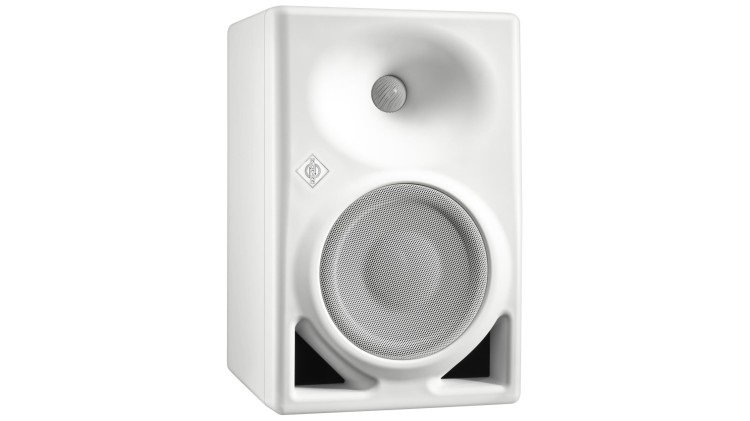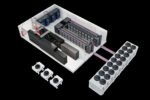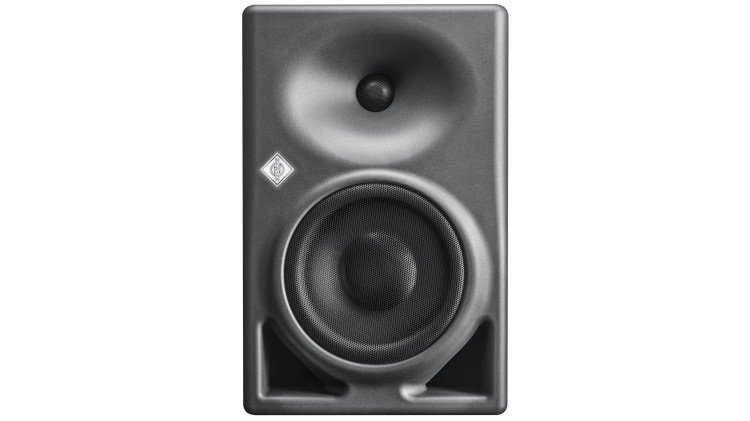German studio specialist Neumann.Berlin expands its line of reference-class studio monitors with the KH 150. The bi-amplified, DSP-controlled loudspeaker features the same high-resolution tweeter as all Neumann studio monitors and a newly developed 6.5″ woofer with ultra-low distortion and high SPL capability. Despite its rather compact format, the KH 150 surprises with outstanding clarity, even at high volume, and extended low-end. The KH 150 has an exceptionally flat frequency response from 39 Hz to 21 kHz (±3 dB) and is recommended for all applications from broadcast to music production. Including styles that require a powerful, deep low-end and/or elevated listening levels such as urban music, EDM, and film scoring.
Digital electronics also allows the KH 150 to be calibrated via Neumann’s MA 1 Automatic Monitor Alignment (sold separately).
 In addition, the KH 150 is extremely energy efficient. Neumann engineers took great care to develop a patent pending amplifier technology which combines superior audio performance with the energy efficiency of Class D. Although the KH 150’s amplifiers deliver up to 145 W to the 6.5″ woofer and 100 W to the 1″ tweeter, they only consume 17 W at idle. Auto-standby reduces power consumption to 0.3 W when the KH 150 has not been used for a while, but can be deactivated.
In addition, the KH 150 is extremely energy efficient. Neumann engineers took great care to develop a patent pending amplifier technology which combines superior audio performance with the energy efficiency of Class D. Although the KH 150’s amplifiers deliver up to 145 W to the 6.5″ woofer and 100 W to the 1″ tweeter, they only consume 17 W at idle. Auto-standby reduces power consumption to 0.3 W when the KH 150 has not been used for a while, but can be deactivated.
The KH 150 offers analog and digital inputs (S/PDIF). It will also be available in an AES67 variant with redundant AES67 audio network ports that are fully compliant with broadcast standards such as ST 2110, ST 2022-7 redundancy, and RAVENNA. At the same time, the KH 150 AES67 is compatible with DANTE-generated AES67 network streams.
The KH 150 and KH 150 AES67 are available in September 2022. List prices: KH 150 USD 1,750 / AED 6,827 (ex-VAT) ; KH 150 AES67 USD 2,000 / AED 7,802 (ex-VAT). Linear frequency and phase response
• DSP engine for outstanding performance and automatic room alignment via MA 1
• Deep low end down to 39 Hz and high SPL capability
• Analog and S/PDIF connectivity, optionally with AES67











